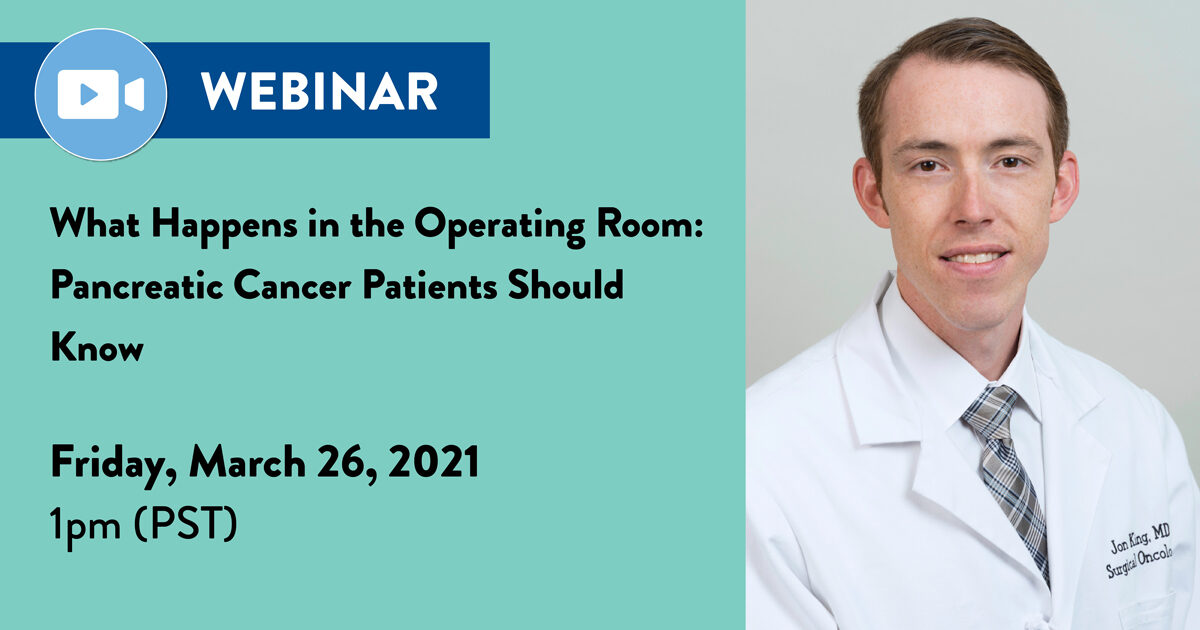Dr. Jonathan King, Assistant Professor in the Division of Surgical Oncology at UCLA will join our Patient and Family Webinar Series to talk about what happens in the pancreatic cancer operating room. He will address what to prepare for before surgery, what to expect on the day of surgery and how to plan for the best post-surgical care. Having a plan in place for each step in your surgical game plan can make the process smoother and assist with recovery times.
When pancreatic cancer is diagnosed in the early stages, or after chemotherapy to shrink a tumor (known as neoadjuvant therapy), surgery may be an option. Usually, surgery removes only the part of the pancreas that has cancer but, in some cases, the whole pancreas may be removed. The type of surgery depends on the location of the tumor in the pancreas. Surgery to remove a tumor in the head of the pancreas is called a Whipple procedure, the most common type of surgery for pancreatic cancer. If the tumor is in the tail of the pancreas, the surgeon may remove the cancerous areas along with your spleen and nearby lymph nodes, known as a distal pancreatectomy. There are also various operative approaches, including laparoscopic, robotic, or open surgery. Dr. King will address the types of surgery and the anatomy involved as well as the common approaches and what to expect from each.
Surgery for pancreatic cancer is a major operation and may require you to stay in the hospital for 7-10 days afterward. Dr. King will discuss how to prepare, including tips for nutrition, physical activity and a plan for post-surgical pain management. He will also address what to expect on surgery day, including what to bring, questions to address and choices you may be asked to make such as epidural placement.
Once the surgery is complete, it takes time to heal and each person’s recovery is different. You may have pain or discomfort for the first few days and it is common to feel weak or tired for a while. Depending on your surgery, it may be hard to digest food and you may feel bloated or full. Dr. King will address the in-hospital steps for post-surgical recovery including operative drains, activity in the hospital and dietary advice.
Dr. Jonathan King is an Assistant Professor in the Division of General Surgery at UCLA. He is a surgeon within the Hirshberg Center for Pancreatic Diseases at UCLA, has presented at past Symposiums and was the Honorary Medical Co-Chair of the 2018 LA Cancer Challenge. He has expertise in robotic-assisted minimally invasive pancreas surgery and performed UCLA’s first minimally-invasive pancreaticoduodenectomy (Whipple procedure). Dr. King is an enthusiastic surgical educator and is developing the UCLA residency training curriculum for robotic-assisted surgery.


